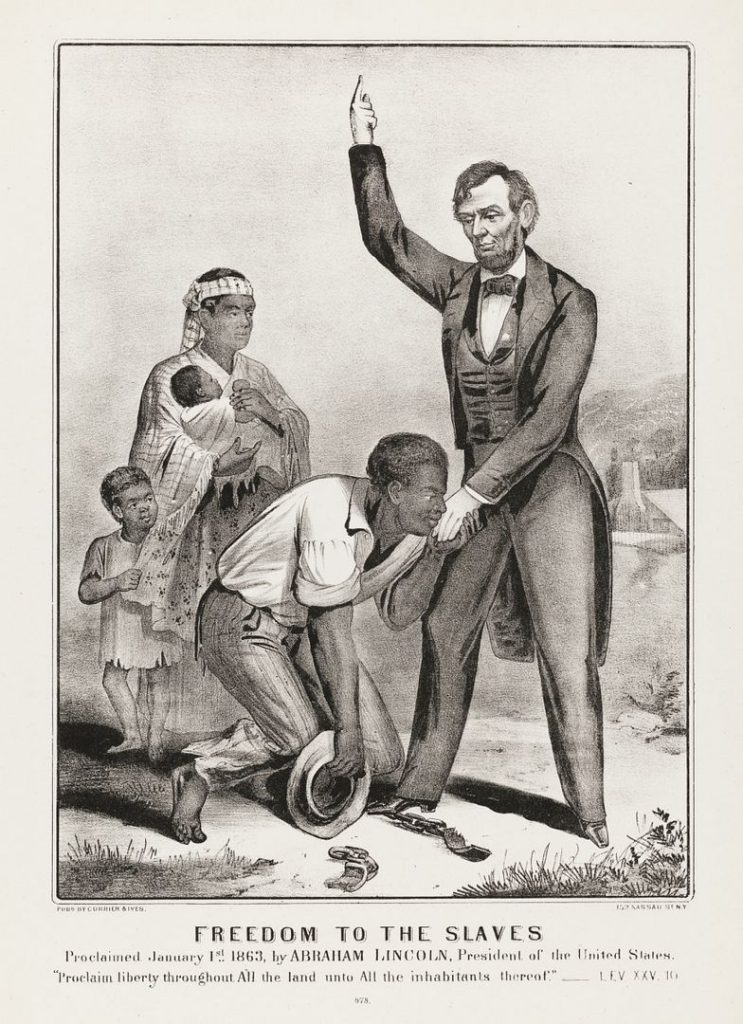One Hundred Fifty-Nine years ago today, the United States took an important step closer to “form[ing] a more perfect union” as our Founders envisioned when Georgia became the last state required to ratify the XIII Amendment. It would take a few more weeks for Secretary of State William Seward to certify the ratification, however, we could finally say that “all men are born free” as slavery was outlawed across the land.
Scholars of history know the tales of the American Civil War, how it was thrust on President Lincoln before he even took office, how it is still the deadliest armed conflict in United States history, and how its aims evolved from preserving the Union to ending the institution of slavery. Less known, however, are the limitations on wartime efforts to end slavery. As the fighting waged on after the Battle of Fort Sumter officially began the War, abolitionist Union Generals began issuing their own orders to free slaves in their command areas. Quickly, Lincoln as Commander-in-Chief would rescind these orders and remove the general from service to reduce tensions with border states. The border states of Missouri, Kentucky, Maryland, and Delaware recognized slavery but did not secede, so efforts were necessary to keep them from rebelling. The first real effort to gain traction was by General Benjamin Butler, who refused to return slaves to a Virginian because they were property that had been used to wage war against the United States. This politically savvy decision did not free slaves in and of itself. Instead, it gave justification for Union officials to seize slaves under their state law status as chattel property (the same status that your cell phone has nowadays). Congress signed off on this action in Section Four of The First Confiscation Act signed on August 6, 1861.
Congress and Lincoln took more steps to free slaves, all however still with the main purpose of returning the states into the Union. The last definitive step was, of course, the Emancipation Proclamation in which Lincoln freed all the slaves in the rebelling states. When the war closed, there was still the issue of the border states having slavery and whether the Proclamation would survive the end of the war, so Lincoln and Radical Republicans began pushing for an amendment to the Constitution. Ultimately, the Amendment as passed was a simple one, declaring that “Neither slavery nor involuntary servitude, except as a punishment for crime whereof the party shall have been duly convicted, shall exist within the United States, or any place subject to their jurisdiction.” With that, the defining, albeit ancillary issue of the Civil War was over. Congress would again act in the next few years to further the goals of Reconstruction, passing both the XIV and XV Amendments.
The promise of these three amendments, known as the Reconstruction Amendments, has been one that has never been completely fulfilled. The biggest of them all is the imprisonment exception to the XIII Amendment. Many states require prisoners to work and are typically paid less than a dollar an hour; four states though do not pay their prisoners at all. As we continue to strive towards “a more perfect union,” we should celebrate the accomplishments of the past, while also realizing that though slavery as it existed in 1860 is gone there are still hundreds of thousands of people working against their will nearly 160 years later.





